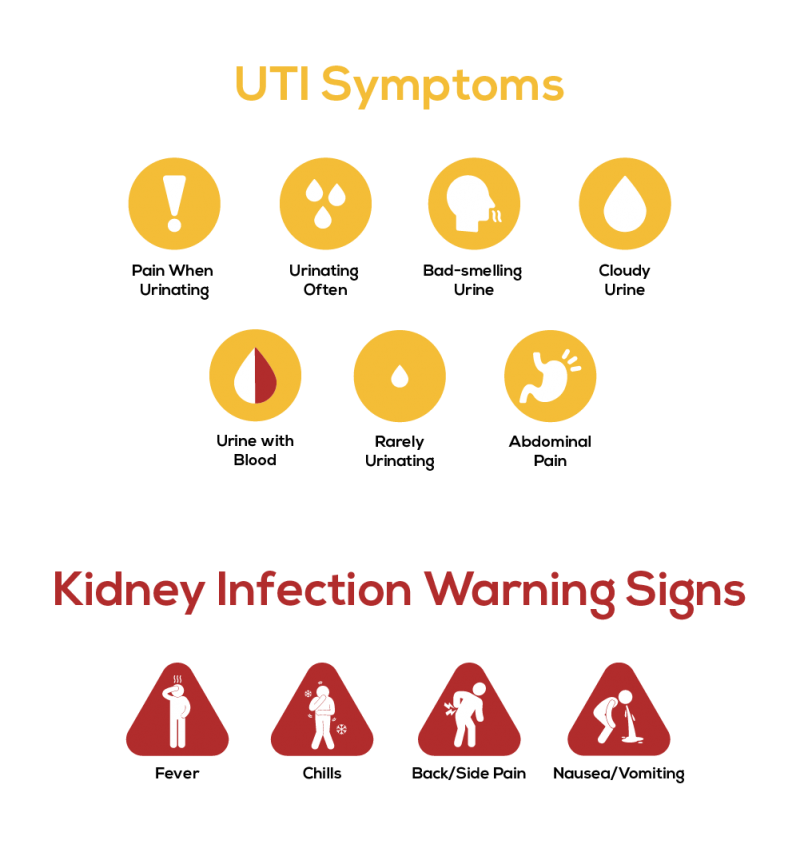Comprehensive Overview to Kidney Stones vs UTI: Diagnosis, Creates, and Alleviation
Comprehensive Overview to Kidney Stones vs UTI: Diagnosis, Creates, and Alleviation
Blog Article
Discovering the Effects and Causes of Kidney Stones in Comparison to Urinary System Infections: A Thorough Guide
The exploration of kidney stones and urinary tract infections (UTIs) discloses a complicated interaction of symptoms and underlying causes that call for cautious examination. While both conditions can bring about hematuria, they present unique medical features and occur from various etiological factors. Comprehending the subtleties of each problem is vital for effective diagnosis and management. What are the crucial distinctions in their symptoms, and how might these notify treatment methods? The solution to these inquiries may provide important insights into the avoidance and treatment of these usual urological problems.
Review of Kidney Stones
Kidney rocks, likewise recognized as renal calculi, form when specific compounds in the urine crystallize and aggregate, resulting in the development of hard deposits within the kidneys. These rocks can vary in dimension, ranging from a grain of sand to a golf round, and can be composed of different materials, the most typical being calcium oxalate, uric acid, struvite, and cystine. The development of kidney rocks is affected by numerous factors, consisting of nutritional behaviors, fluid intake, and genetic proneness.
Signs and symptoms of kidney rocks might consist of serious pain in the back or side, blood in the pee, queasiness, and regular urination, especially as the rock relocates with the urinary system. Diagnosis typically involves imaging studies such as ultrasound or CT scans, along with urinalysis to recognize the stone's composition.
Therapy options vary based on the size and sort of rock, along with the extent of signs and symptoms (Kidney Stones vs UTI). Small rocks might pass normally with raised fluid consumption, while larger rocks might need medical treatments such as lithotripsy or medical elimination. Recognizing the pathophysiology and risk variables connected with kidney stones is necessary for effective prevention and administration
Introduction of Urinary Tract Infections
Urinary system infections (UTIs) prevail bacterial infections that impact any type of component of the urinary system, consisting of the kidneys, ureters, bladder, and urethra. They predominantly occur when microorganisms, often from the intestinal system, get in the urinary system, causing inflammation and infection. UTIs are classified right into two primary kinds: straightforward and complicated. Straightforward UTIs generally happen in healthy and balanced individuals with regular urinary systems, while challenging UTIs might occur in people with underlying problems, such as architectural abnormalities or endangered body immune systems.
The occurrence of UTIs is especially higher in ladies than men, primarily because of physiological differences, such as a shorter urethra. Danger variables consist of sex, certain contraceptive techniques, urinary system retention, and dehydration. The diagnosis of UTIs is typically verified with urine examinations, which might reveal the presence of bacteria, leukocyte, or red cell.

Symptoms of Kidney Stones
The discomfort related to kidney stones can materialize in various ways, frequently leading people to look for medical interest. One of the most typical symptoms is serious discomfort, typically localized in the lower back or side, which may emit to the abdominal area or groin. This pain, often called sharp or cramping, can happen instantly and may change in strength.
In addition, people may experience hematuria, or blood in the urine, which can vary from microscopic quantities to noticeable staining. This symptom may be gone along with by changes in urinary routines, such as raised frequency or seriousness, along with pain during urination. Nausea or vomiting and throwing up are additionally prevalent, typically arising from the body's response to extreme discomfort.
In some cases, individuals might experience fever and cools, especially if an additional infection establishes because of the obstruction created browse around these guys by the rocks. On the whole, the mix of severe pain, hematuria, modified urinary system patterns, and intestinal signs can provide substantial insight into the visibility of kidney stones, warranting punctual medical evaluation and treatment. Recognizing these signs is essential for prompt diagnosis and effective monitoring of the condition.
Signs of Urinary System Tract Infections
Infections within the urinary system frequently offer a variety of distinct symptoms that can substantially influence everyday life. One of the most typical signs and symptoms consist of a persistent urge to pee, commonly come with by a burning feeling during urination, called dysuria. Individuals may additionally experience increased frequency of peeing, generating percentages of urine each time.
Other significant symptoms consist of gloomy or fetid urine, which might indicate the visibility of microorganisms or pus. In many cases, urine may appear red or pink as a result of the existence of blood, a problem called hematuria. Additionally, individuals may experience pelvic discomfort or pressure, which can further intensify the sensation of necessity.
Systemic signs might likewise materialize, such as fever, cools, and exhaustion, particularly if the infection has actually risen to the kidneys. It is important to recognize these signs early, as untreated urinary system system infections can bring about more extreme issues. Kidney Stones vs UTI. Trigger medical interest is advised when these symptoms are observed, permitting ideal diagnostic examination and treatment to alleviate discomfort and prevent additional wellness issues
Sources Of Each Condition
Often, kidney stones and urinary system infections develop from unique yet sometimes overlapping reasons that can impact individuals differently. Kidney stones typically develop as a result of metabolic variables, nutritional options, and genetic tendencies. Boosted degrees of calcium, oxalate, or uric acid in the pee can lead to stone formation. Dehydration, inadequate liquid consumption, and high-sodium diet regimens can exacerbate these problems, advertising condensation within the urinary system tract.

Comprehending these unique causes is critical for prevention and treatment. Kidney Stones vs UTI. While way of living alterations might alleviate the danger of kidney stones, proper hygiene and punctual therapy of urinary system tract infections are vital for decreasing their reoccurrence and linked issues
Final Thought
In recap, navigate to these guys kidney stones and urinary system infections existing distinct signs and symptoms and underlying causes. Kidney stones are identified by extreme pain and metabolic variables, while urinary tract infections mostly involve microbial infections leading to urinary system necessity and discomfort.
The exploration of kidney rocks and urinary tract infections (UTIs) reveals a complex interplay of signs and underlying reasons that call for mindful exam.Urinary system system infections (UTIs) are usual bacterial infections that affect any part of the urinary system, consisting of the here kidneys, ureters, bladder, and urethra.Regularly, kidney rocks and urinary system tract infections develop from distinct yet sometimes overlapping causes that can influence people in different ways.In recap, kidney stones and urinary system infections existing unique symptoms and underlying reasons. Kidney stones are identified by severe discomfort and metabolic aspects, while urinary system infections mainly entail microbial infections leading to urinary necessity and discomfort.
Report this page